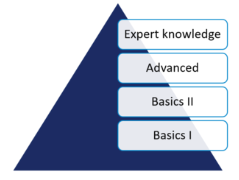Dear QF-Test users and interested parties,
with QF-Test 6.0.5 the final update for QF-Test version 6 was released today in oder to support Java 20 and Eclipse / SWT 4.27 alias "2023-03", fix a number of bugs and prepare the way for parallel operation with QF-Test 7.
Next week, most of our developers are going to attend the JavaLand conference – not only as participants and listeners but also with a talk and our own booth. There we are going to demo our latest and greatest QF-Test version 7, scheduled for release shortly after the conference.
Java 20 and Eclipse 4.27 are now supported
Some Bugfixes
Preparation for parallel operation with the upcoming QF-Test 7.0
We advise all users to update to this version in due time.
Download QF-Test version 6.0.5
To the detailed Release Notes
Save the date: Events in 2023
 | JavaLand 2023 from March 21 to 23, 2023 at Phantasialand Brühl, Germany Visit us at our exhibition booth and listen to our talk Level Up Your Code – OOP-Designtechniken (nicht nur) für Quereinsteiger. |
Free special webinar on June 19 2023 starting 15:30 CEST: Clear the stage for the latest version QF-Test 7.0! We will introduce you to the new refreshed user interface and present the other highlights. |
 | For beginners and experts: Join our QF-Test compact courses from June 12 to 15, 2023. Small groups, via webinar. |
Would you like a training course that is individually tailored to your company? Just send us an email to service@qftest.com.
News
- QF-Test is multilingual - and so are many of its users. In this article we explain how to control the interface language of QF-Test.
➜ Continue reading
- Please read in the new case study how our customer remoso GmbH, as a provider of ERP software solutions in mobility sector, uses QF-Test to increase test speed while maintaining quality through test automation.
➜ To the case study
- The case study of B+S Bankensysteme describes how our client migrated critical banking software from Java Swing to the web via WebSwing. Thanks to QFS, he could simply continue using all existing tests seamlessly.
➜ To the case study
- Students of Prof. José Campos from the University of Lisbon, Portugal have given us feedback on QF-Test as part of their course Verification and Validation of Software.
➜ Read the evaluation report
From our YouTube Channel
- In the recording of our special webinar What's in the box?! – Using QF-Test with Docker containers we will introduce you to our QF-Test Docker image and show you how you can use it for your test automation.
➜ Go to the video
- Visit our YouTube channel to subscribe and take a look at our blog.


